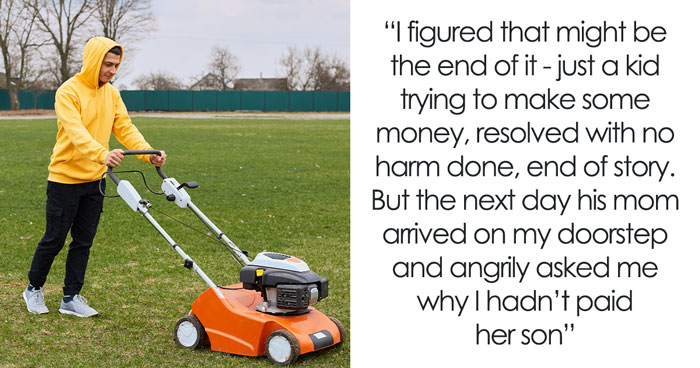Tipping Server is often a controversial subject that divides people into groups. On one hand, there are those who think that the tip should be based on the employee’s quality of service. Meanwhile, the other group believes tips are owed to the workers regardless of their efforts.
No matter where you stand on the debate, this story might change your mind. The poster was unfortunately caught in a tough situation after their acquaintance did a really bad job serving them at a restaurant, so they ended up tipping only $16.
Tipping is a great way to show appreciation for a job well done, but most people get confused about what to do when the service isn’t great

As you might have realized, although you may go back and forth on whether to leave a tip or not, this action directly impacts the restaurant worker. Stephen also told us that “usually friends and acquaintances would have more favorable treatment and be given the benefit of the doubt if something goes wrong.”
“I always recommend taking the ‘high road of graciousness.’ However, I wasn’t there, so the situation is unknown. There is a good reason doctors may not treat good friends–emotion can cloud judgment,” he added.
The poster decided to leave a tip based on their acquaintance’s actions, but this caused additional problems because the guy then began bad-mouthing them. The OP also told commenters that their friends were divided over the situation. Half felt it was cheap to leave a 10% tip, and the other half were disgusted by the tipping culture.
In the grand scheme of things, this situation might not seem like such a big deal, but it definitely resonated with a lot of folks. That’s why the post got 29k upvotes and sparked a debate about the obligation of leaving a tip. It’s definitely some food for thought.
Do you think the author was justified in leaving a 10% tip? Let us know whose side you’re taking in this story.
The poster left a 10% tip because of the subpar service, but instead of being grateful for receiving a tip at all, the entitled acquaintance bad-mouthed them to all their mutual friends

The tipping debate is a massive one, especially because servers depend on it to supplement their meager incomes. The problem is that roughly 66% of U.S. adults have a negative view of leaving a tip, mainly because they feel the concept has gotten out of hand.
This particular situation falls into a bit of a gray area because the server is an acquaintance of the poster. That’s why Daily Trend Blog contacted Stephen Zagor, a consultant and educator who focuses on restaurants and the food business. He has extensive knowledge of the culinary industry and specializes in the business side of food enterprises.
We asked Stephen why so many restaurant workers depend on tips to supplement their income. He said that “servers at dining restaurants in most states are paid a minimum wage lower than the standard minimum due to the use of a tip credit as prescribed by local laws.”
“That means the server needs to make at least the difference between the tip minimum wage and regular minimum wage in tips. In reality, most tipped servers make more; some with expensive checks, much more,” he added.
Netizens were annoyed on behalf of the poster and were outraged by the entitlement of their acquaintance

We asked Stephen whether folks should tip 20% regardless of the quality of the service. He said that “tipping is first and foremost an emotional evaluation and expression of the total dining experience. We eat our meal, feel something from the experience (not only based on the server’s role), then, have the moment of accountability and reckoning: the check and tip.”
“Usually we understand the implied rules–leave a tip because the server/staff counts on that as part of their pay. The magic 20% is often our baseline of how much to leave. It’s sometimes difficult to separate the server from the whole experience. Because the server’s pay is directly affected by the tip, unless there is a very negative experience, 20% is appropriate.”
“How to evaluate the ‘bad behavior’ is really subjective. A fine dining expensive meal will have less room for error. Best to opt on the side of empathy. Also, if you are a regular, that also affects the amount, often more favorably,” he explained.
The poster had every right to tip exactly how they wanted to, but the server being their acquaintance complicated the situation. The worker had messed up the order, not checked on the table, and even mingled with other friends. Overall, it was very poor service, and the poster felt like nobody should automatically get a 20% tip despite such behavior.



